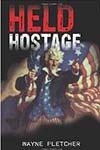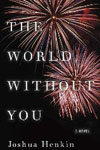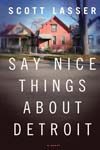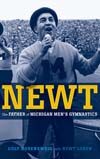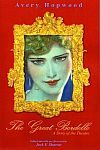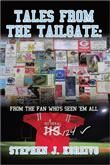Alumni Books
-
Held Hostage
by Wayne Pletcher
Al-Qaeda has taken over the Middle East and control of the OPEC oil that is shipped to the United States. With the goal of a nuclear-armed United Middle East, Al-Qaeda plans to hold the United States hostage for nuclear weapons technology in exchange for oil. Osama Bin Laden, as supreme leader, sets some other ominous conditions as well. America must abandon its bases in the region, and Israel must leave the Middle East forever. The clock is ticking. When the United States is slow to act and the oil supply is cut off entirely, the former L-REDD (long-range explosives detection and detonation) team of renowned scientist Bradford Tully and his brilliant and beautiful partner Zeneca Lang-Tully, along with resourceful and skilled Sam Elson and Aldora Klein, steps in to take on this new challenge. Held Hostage is the sequel to Wayne Pletcher’s, The Campaign of Fear.Using fact-based fiction to suggest ways to solve our country’s energy issues, Held Hostage offers an adept social commentary on one of the biggest issues facing the country today. Author Pletcher earned his PhD in chemistry in 1971. The book is available at Amazon in both paper and Kindle formats.
-
The World Without You
by Joshua Henkin
It’s July 4th in the Berkshires and the far-flung Frankel clan has reunited for a weekend rich with unexpected revelations, long-simmering rivalries, and not-so-subtle complexities. Parents Marilyn and David are contemplating divorce after four decades, much to their adult children’s collective dismay. Their tenuous marriage has disintegrated in the year since their only son was killed in Iraq. Leo, a celebrated and charismatic journalist, commanded the spotlight in both life and death. Now, on the first anniversary of his very public funeral, the family has convened to claim the intimate memorial they were denied the first time around. While the rest of the nation glorifies the rocket’s red glare—which ultimately killed their beloved brother—siblings Noelle, Clarissa, and Lily negotiate a tangled web of family and political dynamics that is at once both heartwarming and heartbreaking. It doesn’t help that Leo’s widow, Thisbe, mother to his only son, carries life-changing secrets of her own.
Henkin is the author of “Swimming Across the Hudson” (a Los Angeles Times Notable Book) and “Matrimony” (a New York TimesNotable Book). His stories have been published widely, cited for distinction in Best American Short Stories, and broadcast on NPR’s “Selected Shorts.” He directs the MFA Program in Fiction Writing at Brooklyn College and is the recipient of the James Fellowship for the Novel, the Hopwood Award, the PEN Syndicated Fiction Award, and a grant from the Michigan Council of the Arts.
-
Say Nice Things About Detroit
by Scott Lasser
Twenty-five years after his high school graduation, David Halpert returns to a place that most people flee. But David is making his own escape—from his divorce and the death of his son. In Detroit, David learns about the double shooting of his high school girlfriend Natalie and her black half-brother. As David becomes involved with Natalie’s sister, he will discover that both he and his hometown have reasons to hope. The racially polarized and economically troubled city of Detroit may not seem like a natural place for rebirth. But as David tries to make sense of the mystery behind Natalie’s death and puts back the pieces of his own life, he is forced to answer a simple question: If you want to go home again, what do you do if home is Detroit?
Lasser is a Detroit native and has worked for National Steel Corp. and Lehman Brothers. He is the author of three novels, including “Battle Creek,” and lives in Aspen, Colo., and Los Angeles, Calif.
-
Newt: The Father of Michigan Men’s Gymnastics
by Colt Rosensweig with Newt Loken
Newt Loken was a coach like no other. He has been compared to Bo Schembechler and John Wooden for his highly honored place in the sport of gymnastics, but he had a style all his own. He was a champion gymnast, an innovative Navy athletic welfare officer in World War II, a dedicated father, a compelling storyteller, and a unique coach.
But those outside the Michigan and gymnastics worlds haven’t really had a chance to know this amazing man, one of the most likeable and successful coaches in Big Ten history … until now. “Colt Rosensweig’s ‘Newt’ captures the coach’s magical quality and infuses it into each chapter. Her chronicle of Newt’s life entertains as it preserves his memory for generations to come,” says Justin Toman, former USA gymnastics national team member and Michigan captain, 1999-2002.
-
Bought and Sold
by Patrick H. Patterson
Yugoslavia was unique among the communist countries of the Cold War era in its openness to mixing cultural elements from both socialism and capitalism. Unlike their counterparts in the nations of the Soviet Bloc, ordinary Yugoslavs enjoyed access to a wide range of consumer goods and services, from clothes and appliances to travel agencies and discotheques. From the mid-1950s onward the political climate in Yugoslavia permitted, and later at times encouraged, a consumerist lifestyle of shopping, spending, acquiring, and enjoying that engaged the public on a day-to-day basis through modern advertising and sales techniques. In Bought and Sold, Patrick Hyder Patterson reveals the extent to which socialist Yugoslavia embraced a consumer culture usually associated with capitalism and explores the role of consumerism in the federation’s collapse into civil war in 1991.
Based on extraordinary research and featuring remarkable examples of Yugoslav print advertising and mass culture, this book reconstructs in often dramatic detail the rise of a culture in which shoppers’ desires trumped genuine human needs. Yugoslavia, Patterson argues, became a land where the symbolic, cultural value of consumer goods was a primary factor in individual and group identity. He shows how a new, aggressive business establishment promoted consumerist tendencies that ordinary citizens eagerly adopted, while the Communist leadership alternately encouraged and constrained the consumer orientation.
Abundance translated into civic contentment and seemed to prove that the regime could provide goods and services equal to those of the capitalist West, but many Yugoslavs, both inside and outside the circles of official power, worried about the contradiction between the population’s embrace of consumption and the dictates of Marxist ideology. The result was a heated public debate over creeping consumerist values, with the new way of life finding fierce critics and, surprisingly for a communist country, many passionate and vocal defenders. Patterson argues that consumerism was one of the critical factors that held the multiethnic society together during the years of the Yugoslav “Good Life” of the 1960s and 1970s. With the economic downturn of the 1980s, however, the reliance on expanding consumerism ultimately led to bitter disillusionment, stripping the unique Yugoslav model of its legitimacy and priming the populace for mutual resentment, ethnic conflict, and war.
-
Jewish Major Leaguers: In Their Own Words
by Peter Ephross
Between 1870 and 2010, 165 Jewish Americans played major league baseball. This work presents oral histories featuring 23 of these Jewish major leaguers. From Bob Berman, a catcher for the Washington Senators in 1918, to Adam Greenberg, an outfielder for the Chicago Cubs in 2005, the players discuss their careers and consider how their Jewish heritage has affected their lives in and out of baseball. Legends like Hank Greenberg and Al Rosen join lesser-known players to reflect on topics such as the annual dilemma of whether to play on high holidays, efforts to rebut anti-Semitism on and off the field, bonds formed with black teammates also facing prejudice, and personal and Jewish pride in their accomplishments. Together, these oral histories paint a vivid portrait of what it was like to be a Jewish major leaguer and shed light on a fascinating facet of American baseball history.
-
The Great Bordello, a Story of the Theatre
by Avery Hopwood, edited by Jack F. Sharrar
“The Great Bordello, a Story of the Theatre” is the heretofore unpublished work of Jazz-Age playwright Avery Hopwood (1882-1928), benefactor of the Avery and Jule Hopwood Awards Program at U-M, his alma mater. Hopwood was the most successful playwright of his day, with four hits on Broadway at the same time, and other hits peppering other seasons. Although Hopwood amassed a fortune writing these Broadway entertainments, his chief goal was to write a significant novel. “Something,” he once told a newspaper reporter, “which an intelligent man can sit down and read and think about.”
A roman à clef completed only days before Hopwood’s early death, “The Great Bordello” was rumored to be “the most devastating exposé of the American theatre as an institution imaginable.” The story plays out in the early decades of the twentieth century, portraying the life of aspiring playwright Edwin Endsleigh, Avery Hopwood’s fictional counterpart. After graduating from the University of Michigan, Edwin heads for Broadway to earn his fortune and the security to pursue his one true dream of writing the great American novel. Shaping Edwin’s ambitious journey is his love of three women: the strong-minded Julia Scarlet; the haunting Jessamy Lee, and Adelina Kane, idol of the American stage; in the company of Edwin and his loves are a dramatic array of thinly veiled representations of theatrical personages of the time, amongst them Daniel Mendoza, the powerful impresario; the worldly-wise veteran of the stage, Ottilie Potter, who has gotten where she is because, “Men had what I wanted, and I had what they wanted”; and the huge, manlike Helen Sampson, chief among theatrical agents. In the end, “The Great Bordello” provides a deeper understanding of the human desire to accomplish something of enduring value amidst commercial success and ruthless realities of life.
Jack F. Sharrar is author of “Avery Hopwood, His Life and Plays” (UMI Press), and has adapted two of Hopwood’s plays, “Fair and Warmer” and “Just for Tonight.” He is Director of Academic Affairs for the American Conservatory Theater in San Francisco, and is a graduate of the University of Michigan, and holds a Ph.D. in theater history and dramatic literature from the University of Utah.
-
Innovation for the 21st Century
by Michael Carrier
In recent years, innovation has been threatened by the United States legal system. Much of the blame can be attributed to the antitrust and intellectual property laws. “Innovation for the 21st Century” seeks to reverse this trend, offering ten revolutionary proposals, from pharmaceuticals to peer-to-peer software, to help foster innovation. Rutgers law professor Michael Carrier (UM Law ’95) discusses how antitrust law could lower prescription drug prices. He explains how copyright law could be changed to create the next FaceBook or YouTube. And he proposes a system that would result in better patents.
-
Tales from the Tailgate: From the Fan Who’s Seen ‘Em All
by Steve Koreivo
Few can say they have seen every NCAA Division 1A football team play. Steve Koreivo can claim just that. “College football—what better way to spend an autumn afternoon?” As a boy, those words from ABC’s Chris Schenkel inspired Koreivo, who details his quest to see every major team (now Football Bowl Subdivision) in his book “Tales from the Tailgate: From the Fan Who’s Seen ‘Em All.”
Koreivo’s history of games involving FBS teams from Michigan includes Michigan State’s 500th win led by RB Tico Duckett; Michigan’s first Big Ten visit to Happy Valley with a big day from RB Tyrone Wheatley; and the “directional” Michigans in their struggles on the road. Central visits Syracuse, Eastern’s Eagles avoid a goose egg at Maryland’s Byrd, and Western’s Broncos get dumped on as does the author at Virginia Tech. His history also details Notre Dame games against Navy, LSU, and Washington State as each game added another team to his final goal.
Also included are Koreivo’s experiences with a lucky snag of Rose Bowl tickets in 1995 thanks to Kermit the Frog; an intense cross-country flight after 9/11; record-setting games of Head Coach Joe Paterno; and Marshall’s 1997 rebirth into 1A football years after a tragic plane crash killed most of their football players in 1970. Koreivo’s history is recorded on his website www.collegefootballfan.com.

